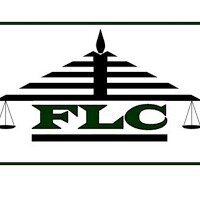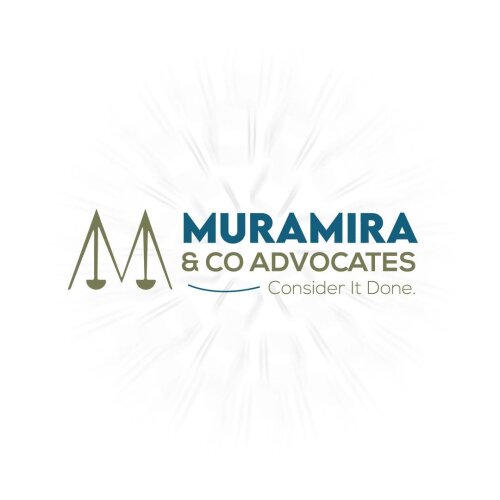Best Landlord & Tenant Lawyers in Rwanda
Share your needs with us, get contacted by law firms.
Free. Takes 2 min.
Free Guide to Hiring a Real Estate Lawyer
Or refine your search by selecting a city:
List of the best lawyers in Rwanda
About Landlord & Tenant Law in Rwanda:
Landlord & Tenant law in Rwanda governs the relationship between property owners (landlords) and tenants who rent or lease their properties. It sets out the rights and responsibilities of both parties to ensure a fair and harmonious landlord-tenant relationship.
Why You May Need a Lawyer:
You may need a lawyer specializing in Landlord & Tenant law in Rwanda in situations such as disputes over rent payments, property maintenance issues, eviction proceedings, lease agreement negotiations, or violations of tenant rights. A lawyer can provide legal advice, represent you in court, and help resolve conflicts in a professional and efficient manner.
Local Laws Overview:
In Rwanda, the landlord-tenant relationship is governed by the 2006 Law on Tenancy. The law sets out the rights and obligations of both landlords and tenants, including rent payment terms, maintenance responsibilities, eviction procedures, and dispute resolution mechanisms. It is essential to familiarize yourself with these laws to ensure that your rights are protected and respected.
Frequently Asked Questions:
1. Can a landlord increase the rent without notice?
No, under Rwandan law, the landlord must provide the tenant with at least one month's notice before increasing the rent.
2. What are the landlord's responsibilities regarding property maintenance?
The landlord is responsible for ensuring that the property is in a habitable condition, including repairs to the structure, plumbing, electricity, and other essential amenities.
3. Can a tenant be evicted without cause?
No, the landlord can only evict a tenant for specific reasons outlined in the law, such as non-payment of rent or breach of the lease agreement.
4. How can a tenant terminate a lease agreement early?
A tenant can terminate a lease agreement early by providing the landlord with the required notice as stipulated in the lease agreement or the law.
5. What steps can a tenant take if the landlord refuses to make necessary repairs?
If the landlord refuses to make necessary repairs, the tenant can file a complaint with the local housing authority or seek legal advice to enforce their rights.
6. Can a landlord enter the rental property without the tenant's permission?
A landlord can only enter the rental property with the tenant's permission or in case of emergency or necessary repairs, provided that proper notice is given to the tenant.
7. How long does a landlord have to return the security deposit after the lease ends?
The landlord must return the security deposit to the tenant within 15 days after the lease ends, minus any deductions for damages or unpaid rent.
8. Can a tenant sublet the rental property to someone else?
A tenant can sublet the rental property with the landlord's permission, unless otherwise specified in the lease agreement.
9. What are the consequences of breaching a lease agreement?
Breaching a lease agreement can result in legal action, eviction proceedings, or financial penalties, depending on the nature of the breach and the terms of the lease agreement.
10. How can a tenant resolve a dispute with the landlord amicably?
A tenant can attempt to resolve a dispute with the landlord through open communication, mediation, or seeking legal advice to find a mutually acceptable solution.
Additional Resources:
If you need legal advice or assistance regarding Landlord & Tenant issues in Rwanda, you can contact the Rwanda Housing Authority or seek help from legal professionals specializing in property law.
Next Steps:
If you require legal assistance in Landlord & Tenant matters in Rwanda, it is advisable to consult with a qualified lawyer who can provide guidance, representation, and help protect your rights under the law. Be sure to gather all relevant documents and details related to your case before seeking legal advice to ensure a productive and effective consultation.
Lawzana helps you find the best lawyers and law firms in Rwanda through a curated and pre-screened list of qualified legal professionals. Our platform offers rankings and detailed profiles of attorneys and law firms, allowing you to compare based on practice areas, including Landlord & Tenant, experience, and client feedback.
Each profile includes a description of the firm's areas of practice, client reviews, team members and partners, year of establishment, spoken languages, office locations, contact information, social media presence, and any published articles or resources. Most firms on our platform speak English and are experienced in both local and international legal matters.
Get a quote from top-rated law firms in Rwanda — quickly, securely, and without unnecessary hassle.
Disclaimer:
The information provided on this page is for general informational purposes only and does not constitute legal advice. While we strive to ensure the accuracy and relevance of the content, legal information may change over time, and interpretations of the law can vary. You should always consult with a qualified legal professional for advice specific to your situation.
We disclaim all liability for actions taken or not taken based on the content of this page. If you believe any information is incorrect or outdated, please contact us, and we will review and update it where appropriate.
Browse landlord & tenant law firms by city in Rwanda
Refine your search by selecting a city.














